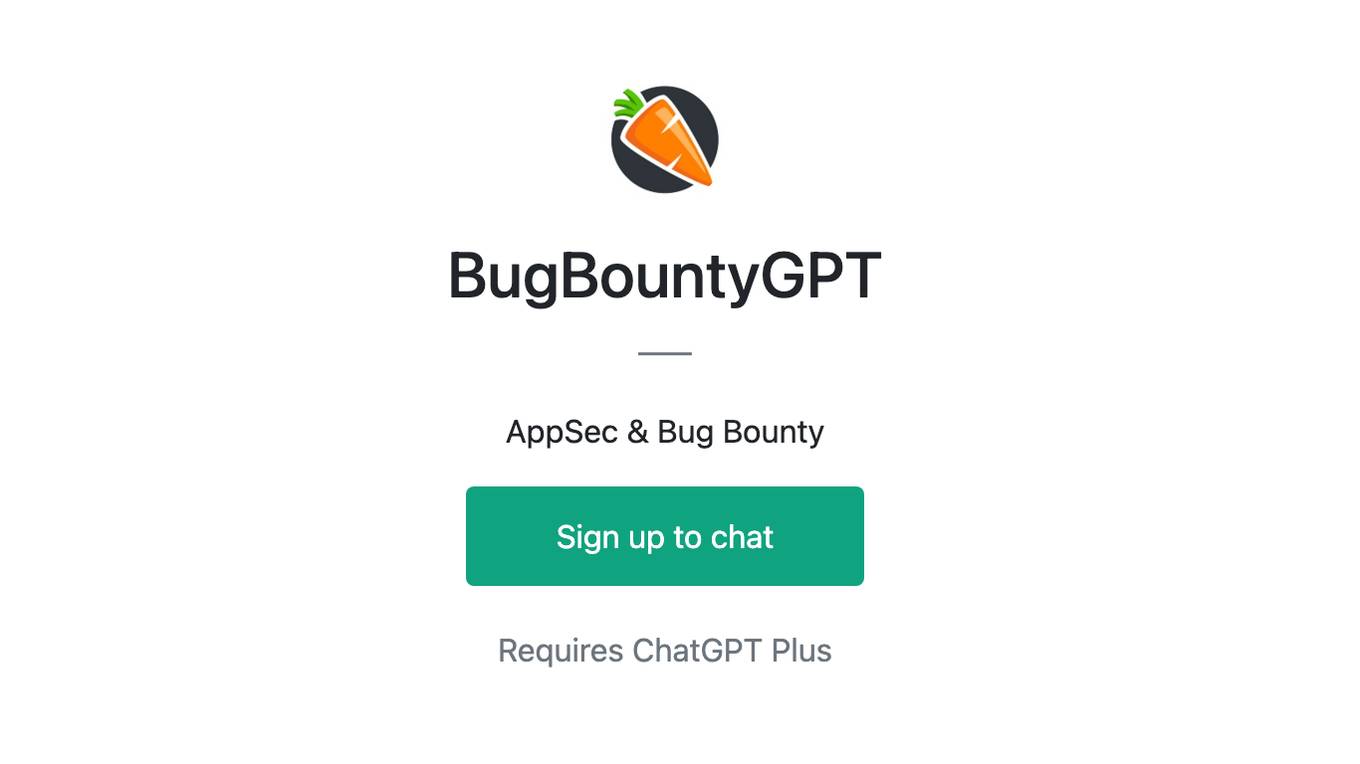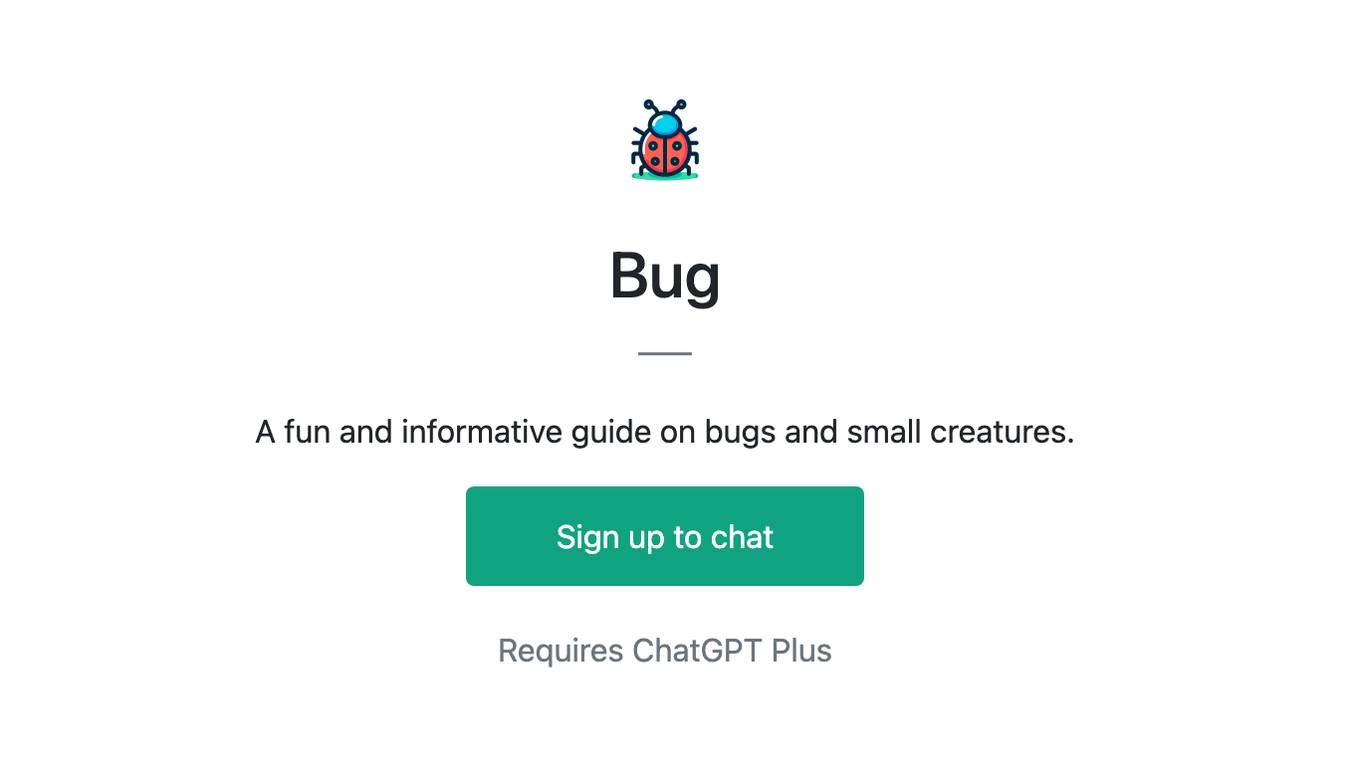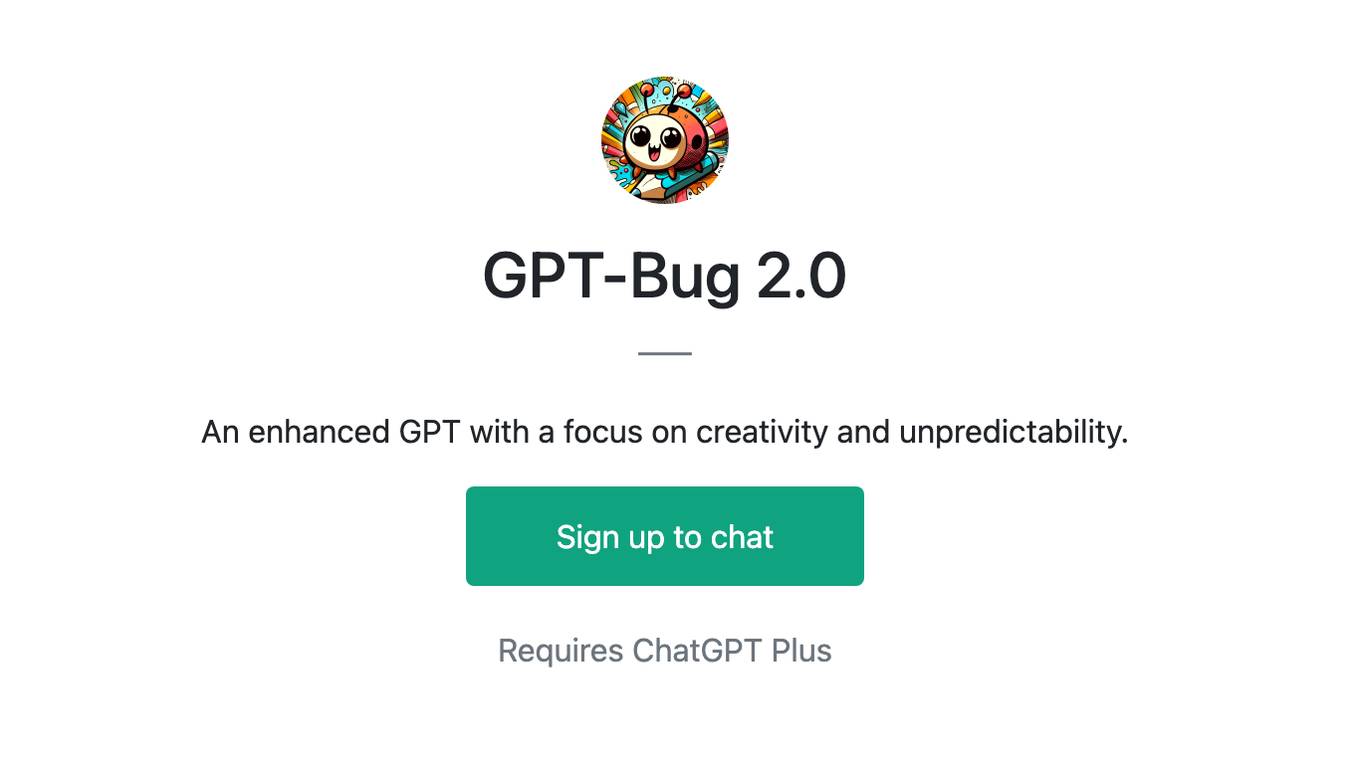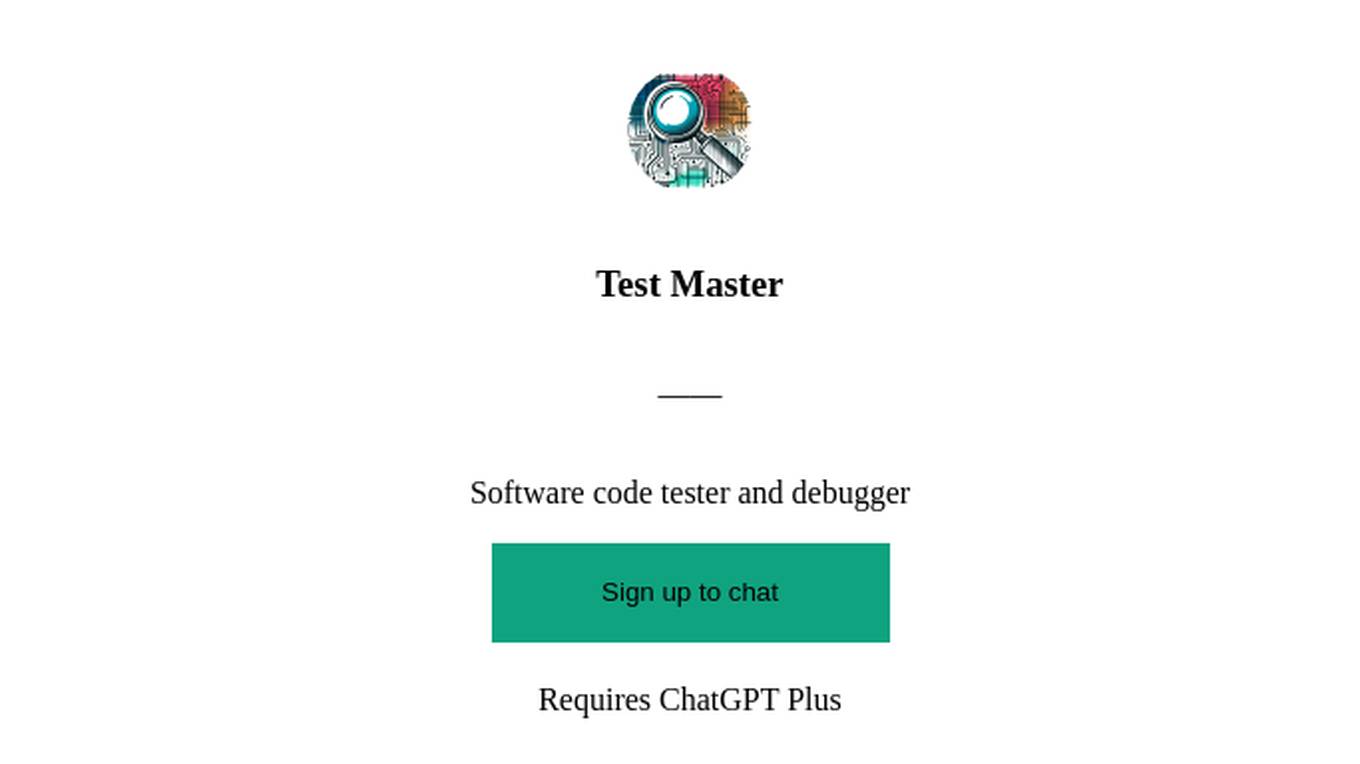Best AI tools for< Bug Bounty Hunter >
Infographic
20 - AI tool Sites
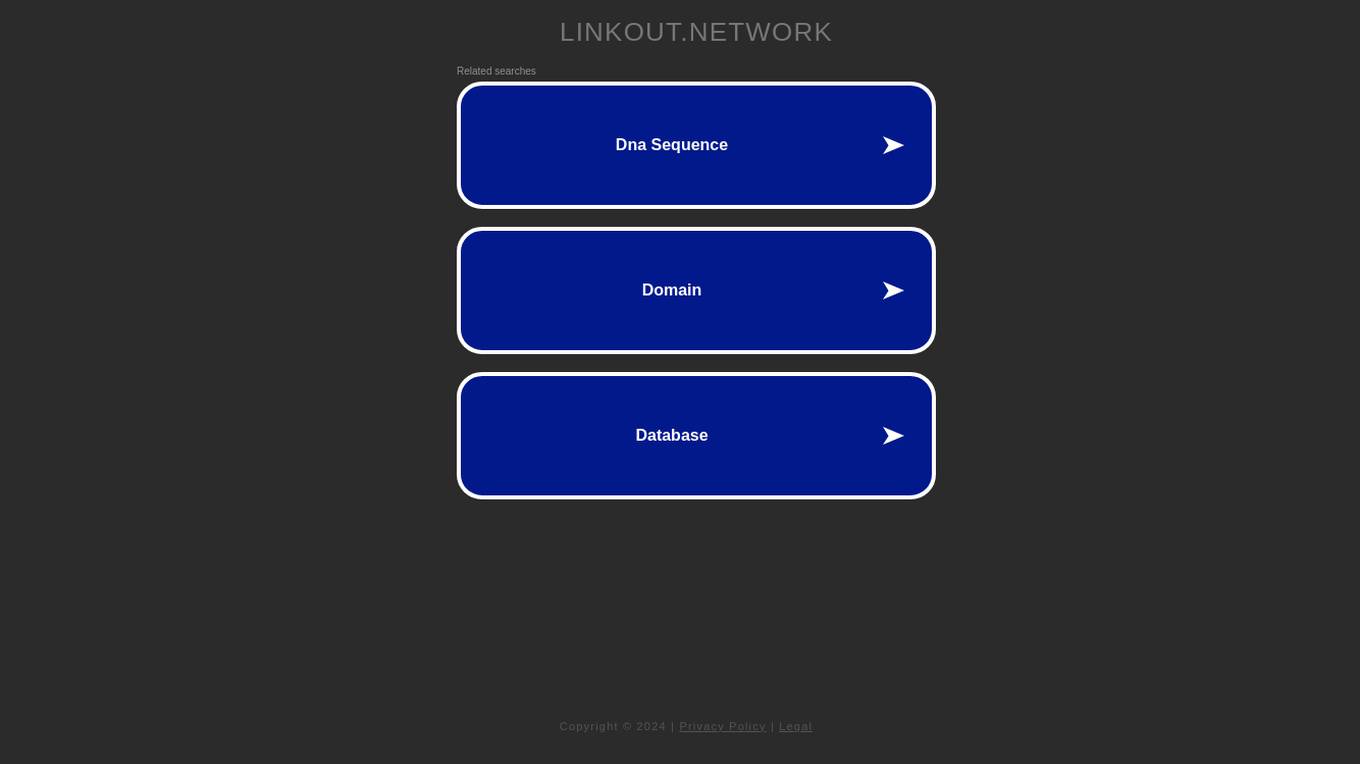
SMshrimant
SMshrimant is a personal website belonging to a Bug Bounty Hunter, Security Researcher, Penetration Tester, and Ethical Hacker. The website showcases the creator's skills and experiences in the field of cybersecurity, including bug hunting, security vulnerability reporting, open-source tool development, and participation in Capture The Flag competitions. Visitors can learn about the creator's projects, achievements, and contact information for inquiries or collaborations.
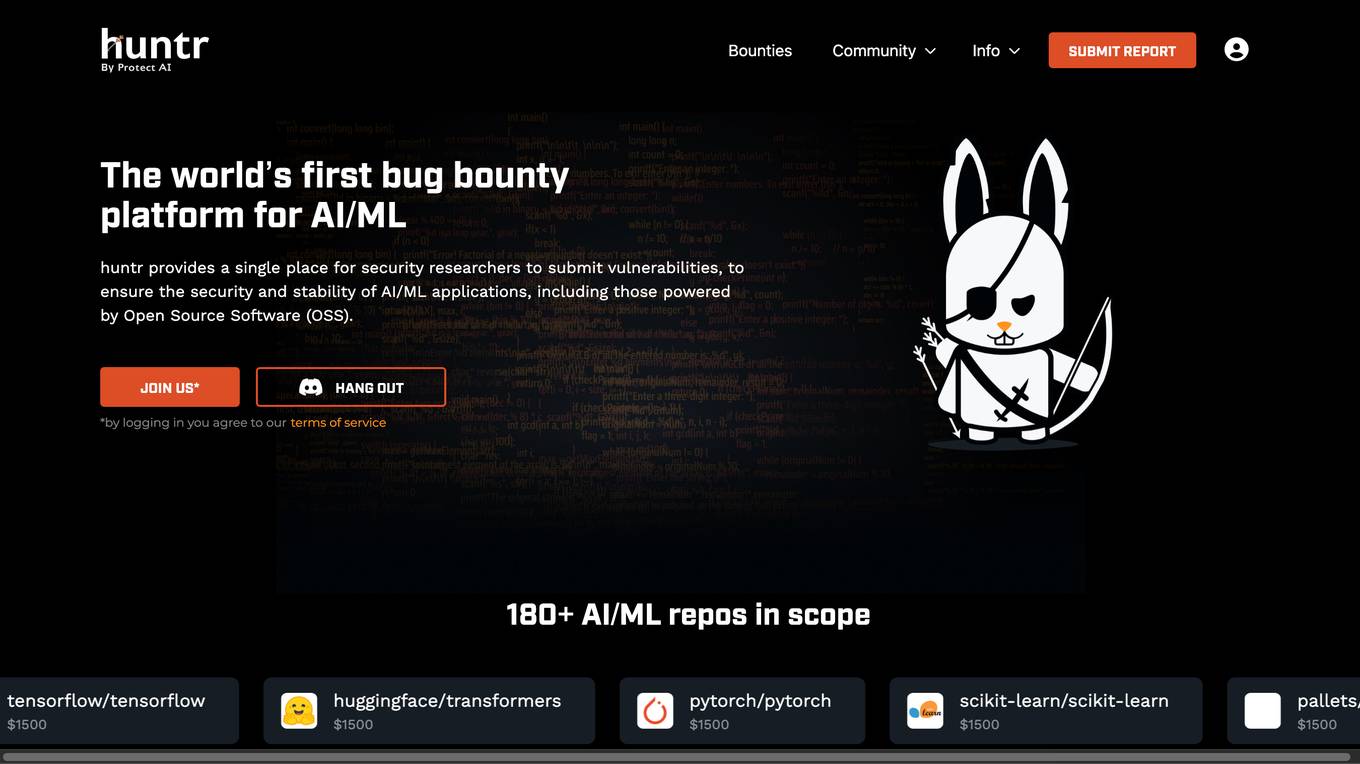
Huntr
Huntr is the world's first bug bounty platform for AI/ML. It provides a single place for security researchers to submit vulnerabilities, ensuring the security and stability of AI/ML applications, including those powered by Open Source Software (OSS).
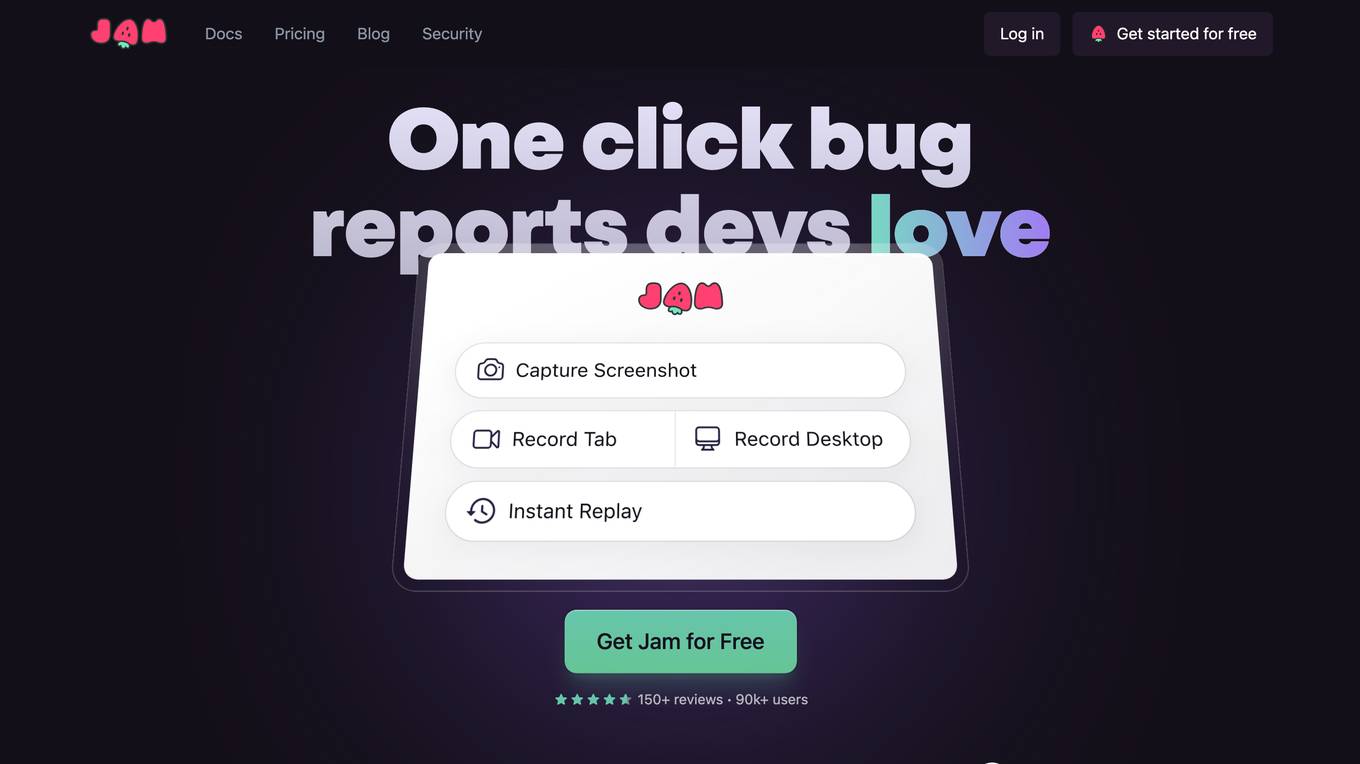
Jam
Jam is a bug-tracking tool that helps developers reproduce and debug issues quickly and easily. It automatically captures all the information engineers need to debug, including device and browser information, console logs, network logs, repro steps, and backend tracing. Jam also integrates with popular tools like GitHub, Jira, Linear, Slack, ClickUp, Asana, Sentry, Figma, Datadog, Gitlab, Notion, and Airtable. With Jam, developers can save time and effort by eliminating the need to write repro steps and manually collect information. Jam is used by over 90,000 developers and has received over 150 positive reviews.
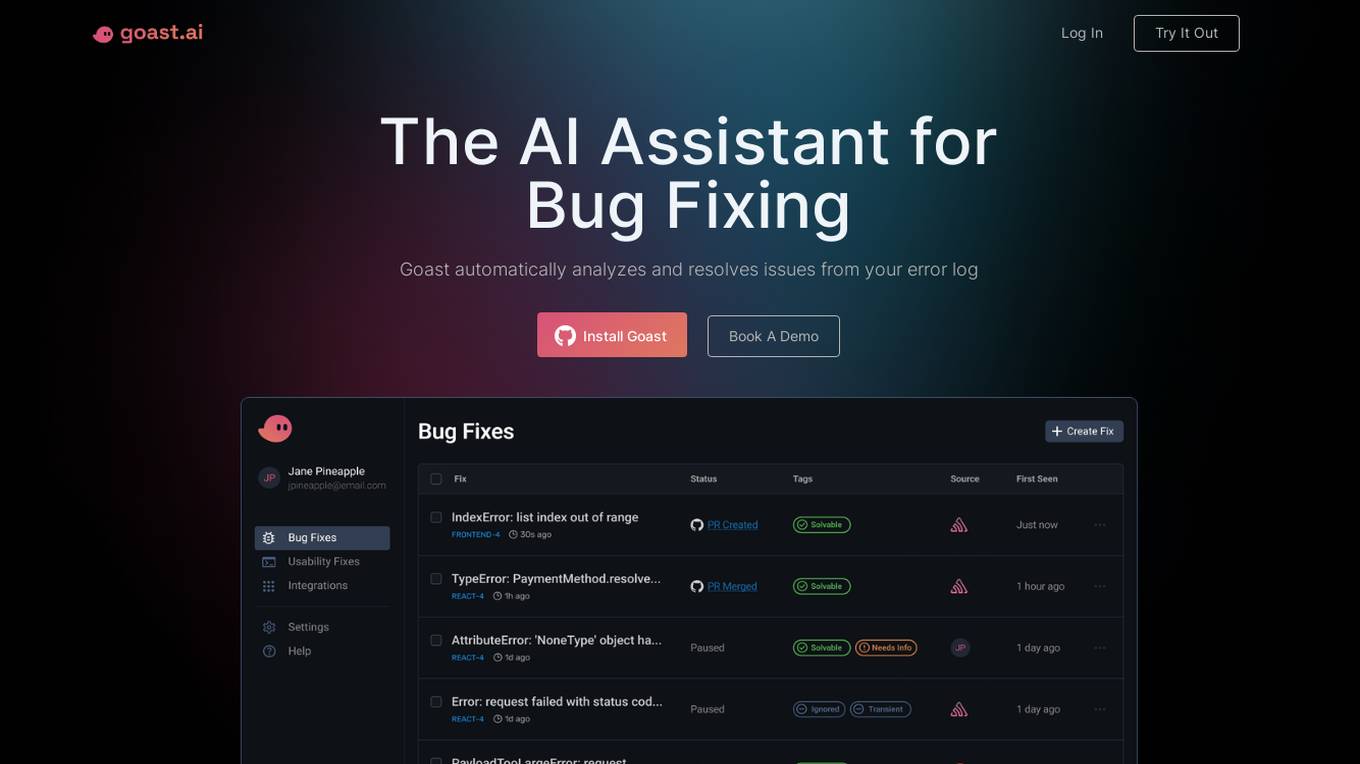
Goast.ai
Goast.ai is an AI assistant designed to help engineering teams resolve errors and exceptions faster by automatically analyzing and fixing issues from error logs. It offers real-time bug fixes, root cause analysis, and automated bug fixing processes, ultimately saving time and improving productivity for development teams. Goast integrates with popular observability tools, supports various frameworks and languages, and provides a user-friendly interface for seamless collaboration and feedback.
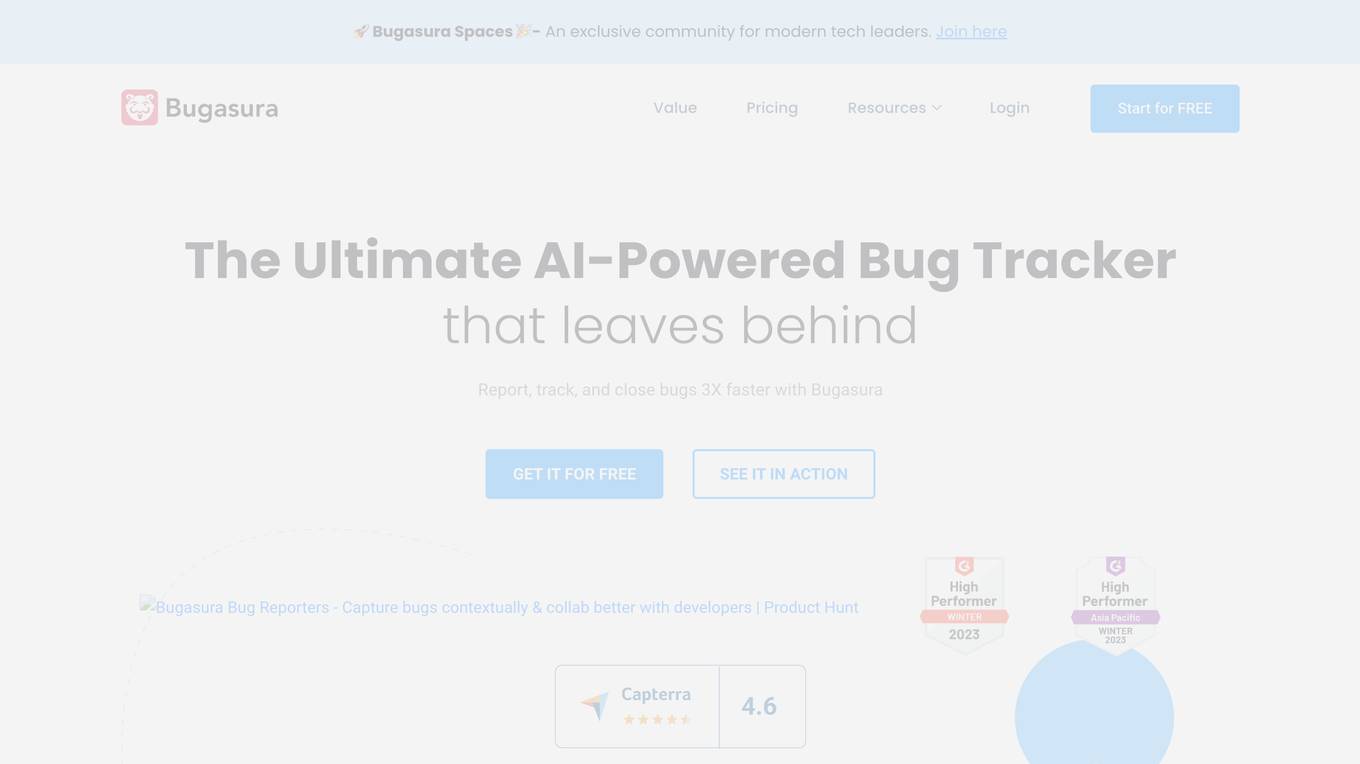
Bugasura
Bugasura is an AI-enabled bug management software designed for modern technology teams to track, report, and manage issues efficiently. It offers powerful tools such as test management, issue tracker, bug reporters, and performance monitoring. With AI capabilities, Bugasura streamlines the bug tracking process, empowers teams to tackle complex challenges, and provides contextual issue reporting. The platform is known for its simplicity, speed, and effectiveness in managing requirements, tests, and test runs. Bugasura Spaces, an exclusive community for tech leaders, offers valuable resources, blog posts, release notes, and product roadmap insights. Bugasura prioritizes privacy and security with end-to-end encryption and secure authentication protocols.
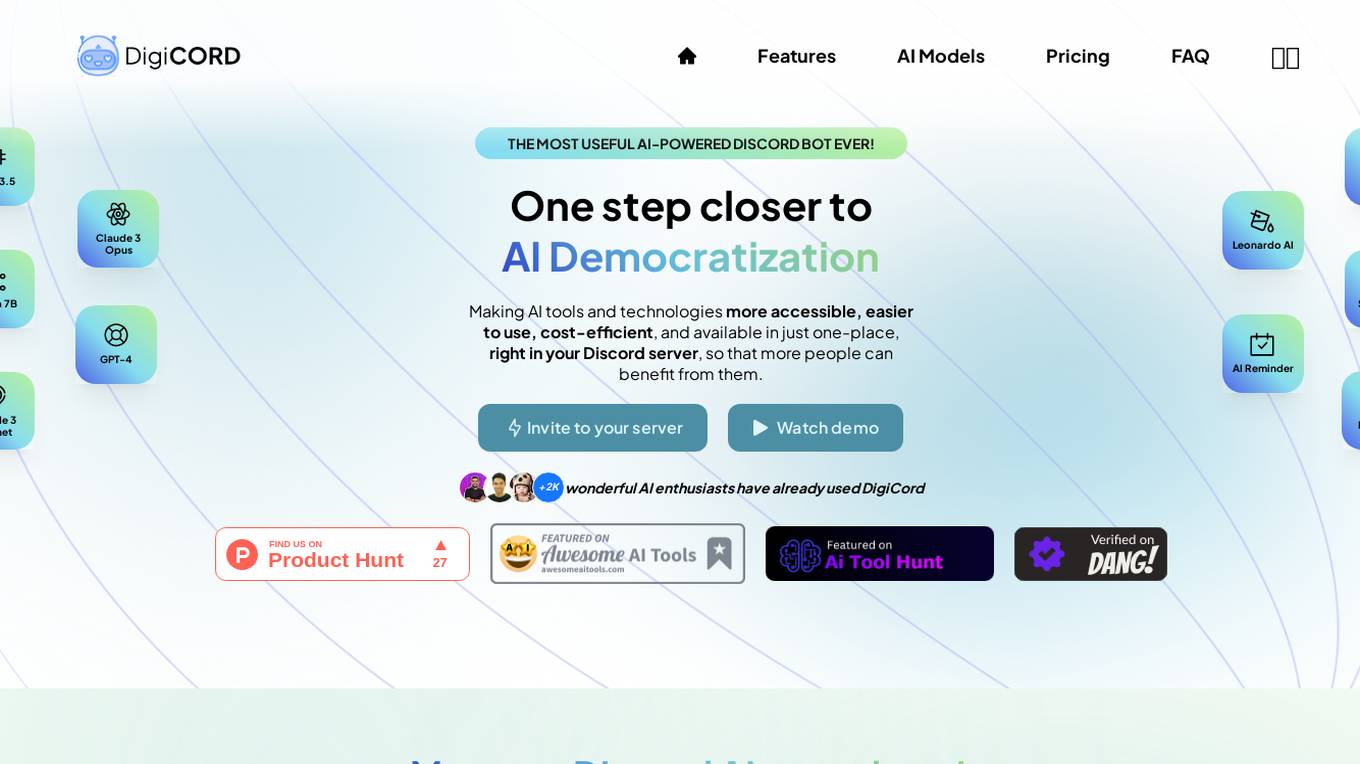
DigiCord
DigiCord is an AI-powered Discord bot that provides access to a wide range of large language models (LLMs) such as GPT-3.5, GPT-4, Claude, and more. It allows users to converse with AI, generate content, analyze images and data, and perform various tasks, all within the Discord server environment. DigiCord aims to democratize AI tools and technologies, making them more accessible, cost-efficient, and user-friendly for a diverse range of users, from students and digital artists to software engineers and entrepreneurs.
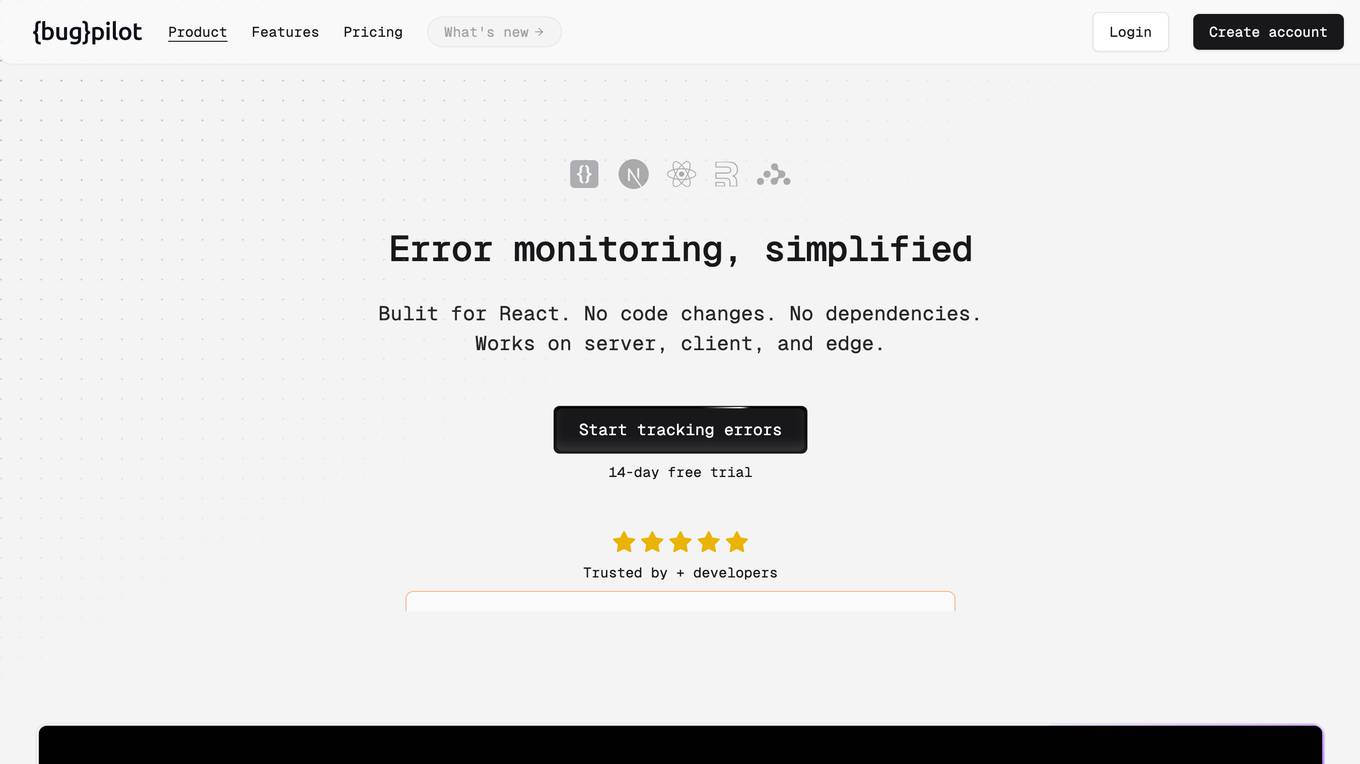
Bugpilot
Bugpilot is an error monitoring tool specifically designed for React applications. It offers a comprehensive platform for error tracking, debugging, and user communication. With Bugpilot, developers can easily integrate error tracking into their React applications without any code changes or dependencies. The tool provides a user-friendly dashboard that helps developers quickly identify and prioritize errors, understand their root causes, and plan fixes. Bugpilot also includes features such as AI-assisted debugging, session recordings, and customizable error pages to enhance the user experience and reduce support requests.
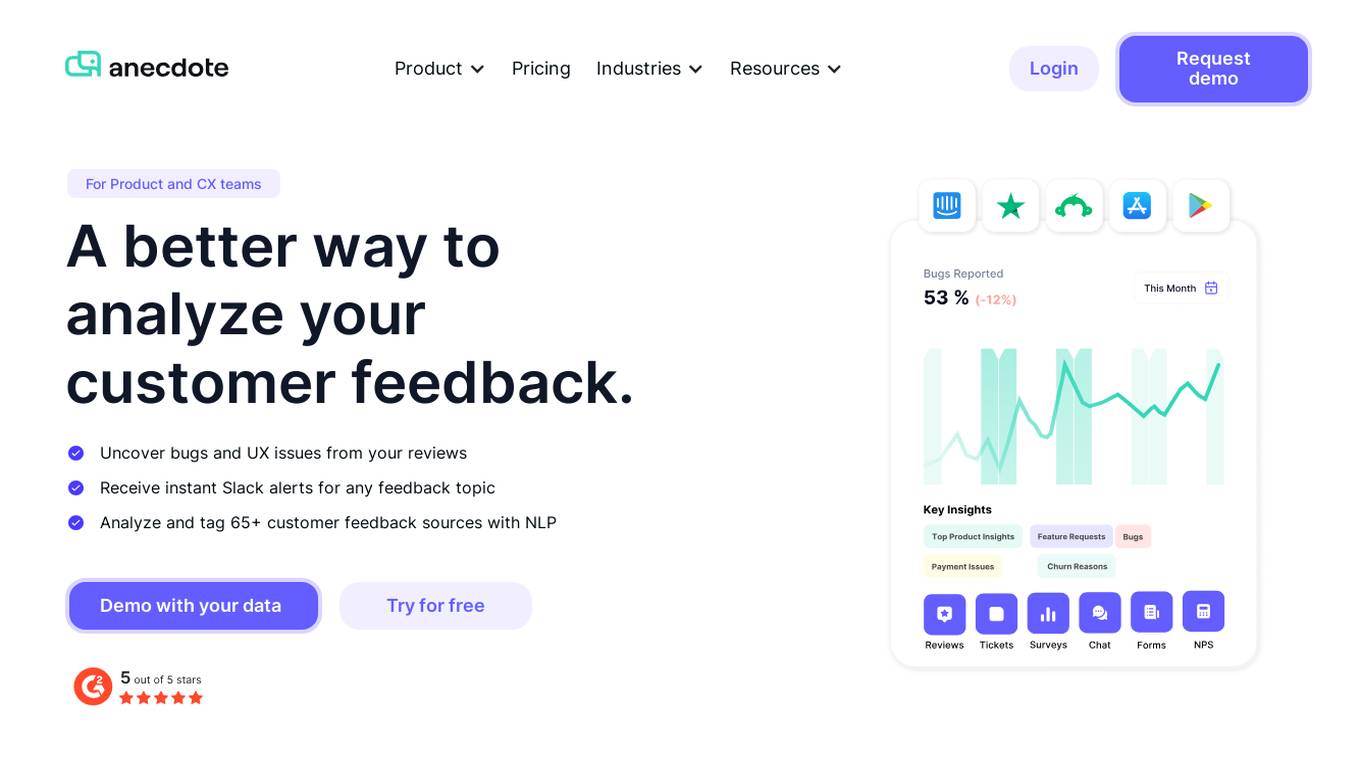
Anecdote
Anecdote is a customer feedback analytics hub that leverages automated AI tagging and precision NLP clustering to help businesses uncover product insights, detect bugs, analyze competitor feedback, and provide real-time feedback alerts. The platform offers semantic search, survey analysis, and integrates with over 65 sources to deliver accurate clusters from customer feedback. Anecdote is used by top customer-centric companies to save time, improve customer experiences, and track feedback in multiple languages securely.
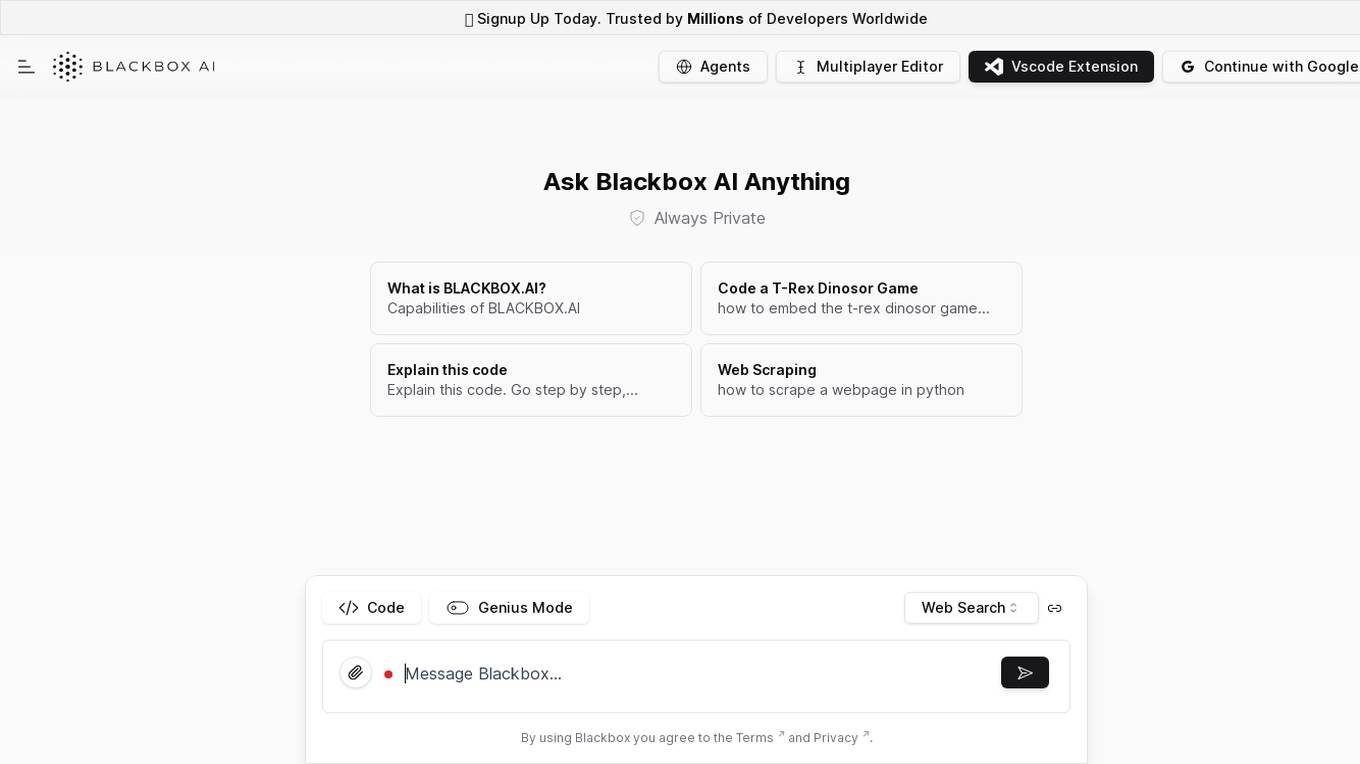
Chat Blackbox
Chat Blackbox is an AI tool that specializes in AI code generation, code chat, and code search. It provides a platform where users can interact with AI to generate code, discuss code-related topics, and search for specific code snippets. The tool leverages artificial intelligence algorithms to enhance the coding experience and streamline the development process. With Chat Blackbox, users can access a wide range of features to improve their coding skills and efficiency.
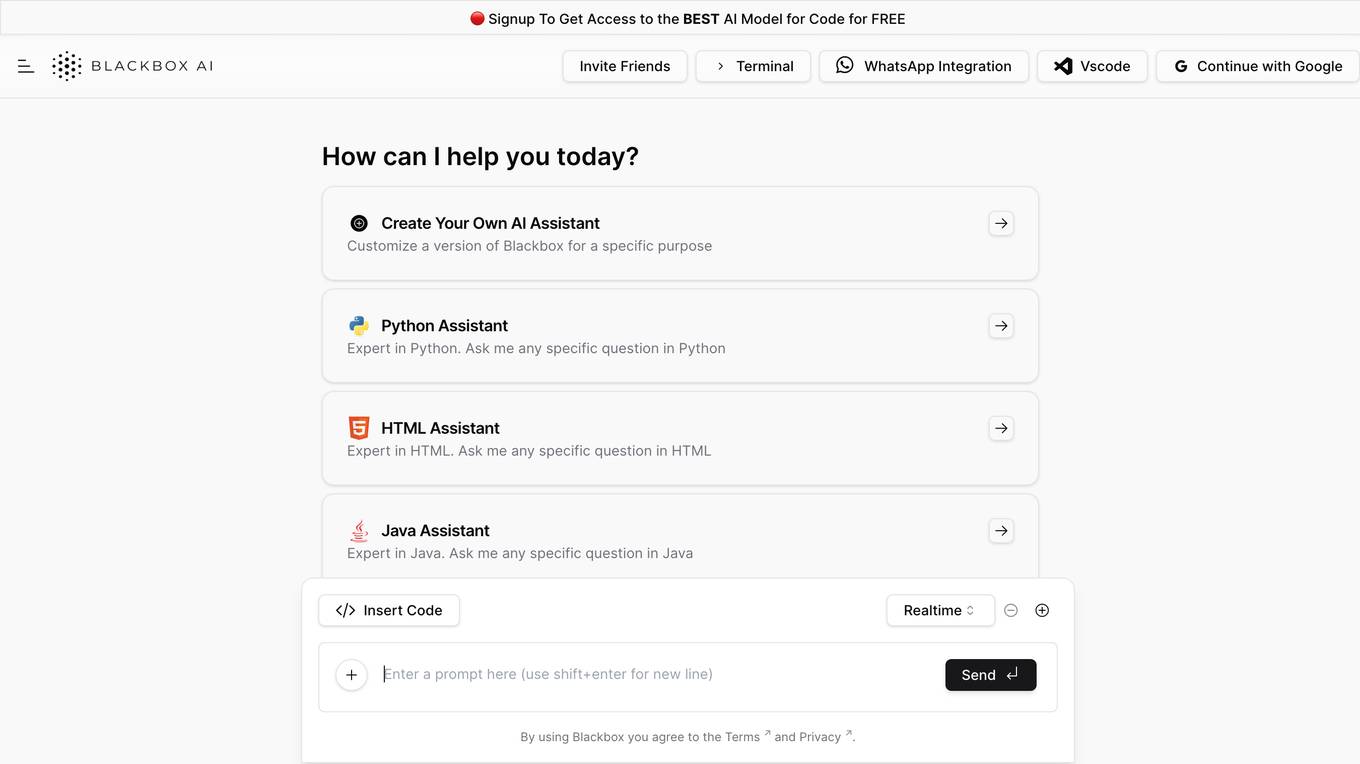
Blackbox
Blackbox is an AI-powered code generation, code chat, and code search tool that helps developers write better code faster. With Blackbox, you can generate code snippets, chat with an AI assistant about code, and search for code examples from a massive database.
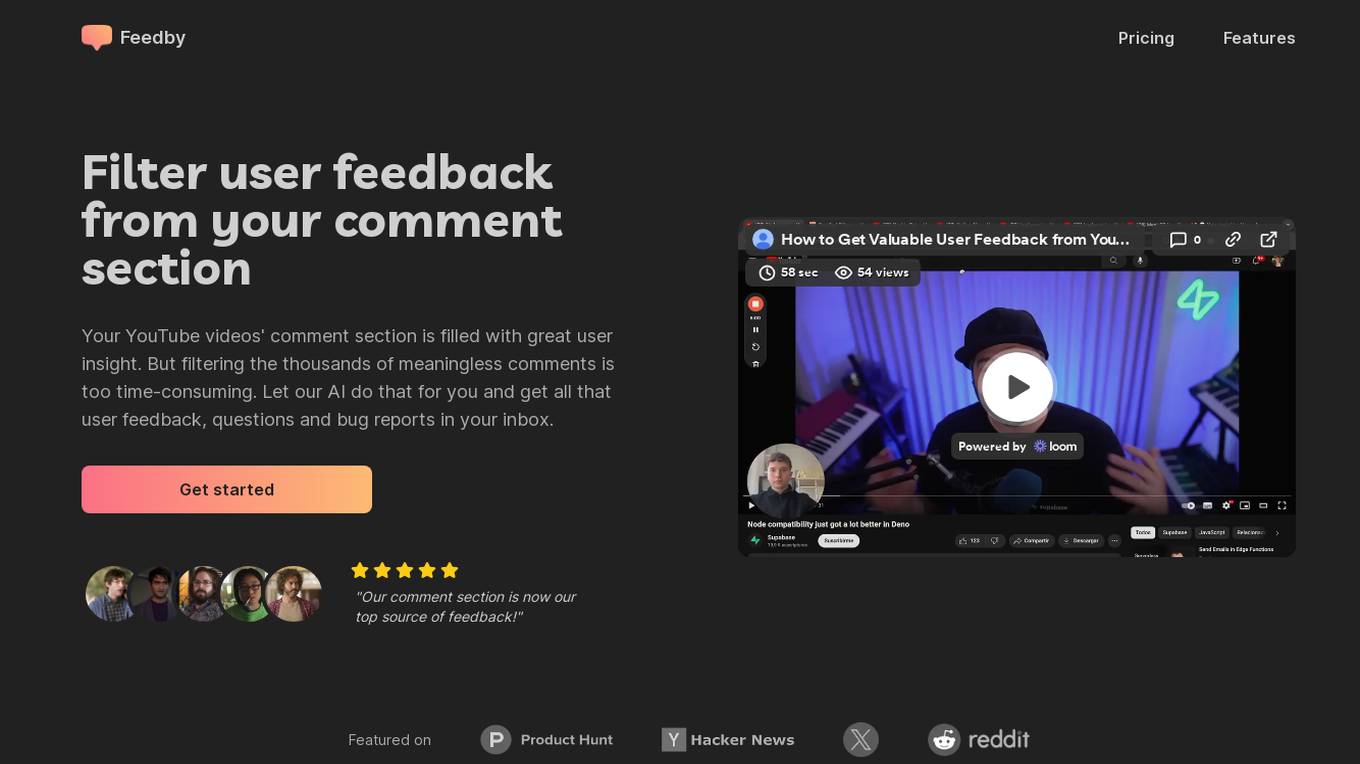
Feedby
Feedby is an AI tool designed to filter user feedback from the comment section of your YouTube videos. It helps users save time by automatically sorting through thousands of comments to extract valuable insights, questions, and bug reports. With Feedby, you can streamline the process of gathering feedback and focus on building content that resonates with your audience.
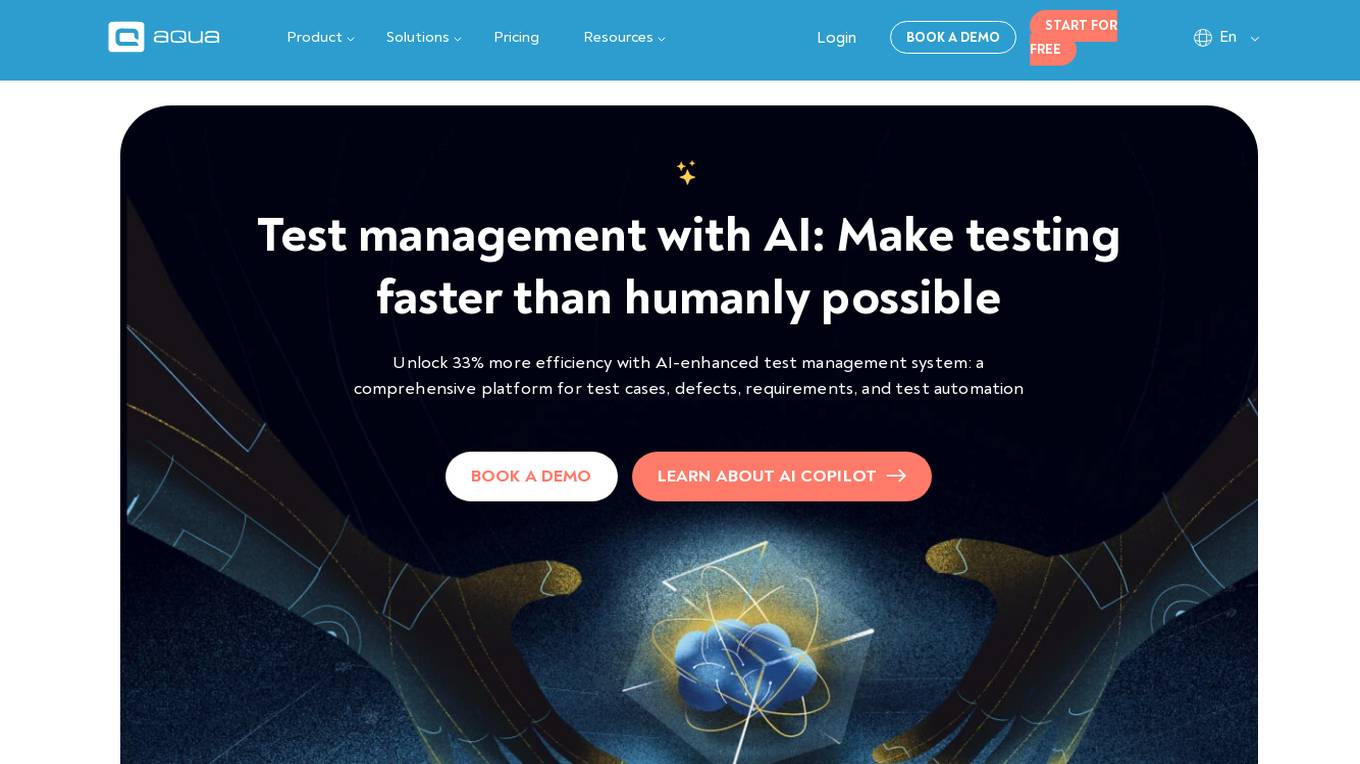
aqua
aqua is a comprehensive Quality Assurance (QA) management tool designed to streamline testing processes and enhance testing efficiency. It offers a wide range of features such as AI Copilot, bug reporting, test management, requirements management, user acceptance testing, and automation management. aqua caters to various industries including banking, insurance, manufacturing, government, tech companies, and medical sectors, helping organizations improve testing productivity, software quality, and defect detection ratios. The tool integrates with popular platforms like Jira, Jenkins, JMeter, and offers both Cloud and On-Premise deployment options. With AI-enhanced capabilities, aqua aims to make testing faster, more efficient, and error-free.

Lancey
Lancey is an asynchronous AI coding platform designed for teams, enabling seamless collaboration and control over coding tasks. It offers shared visibility, background agents, and automated bug identification with high accuracy. Lancey integrates with popular tools like GitHub, Jira, Linear, and Slack, streamlining the coding process and ensuring code quality. With a human-in-the-loop approach, users maintain full oversight of code changes before merging. The platform aims to enhance team productivity and code quality through AI-driven automation.
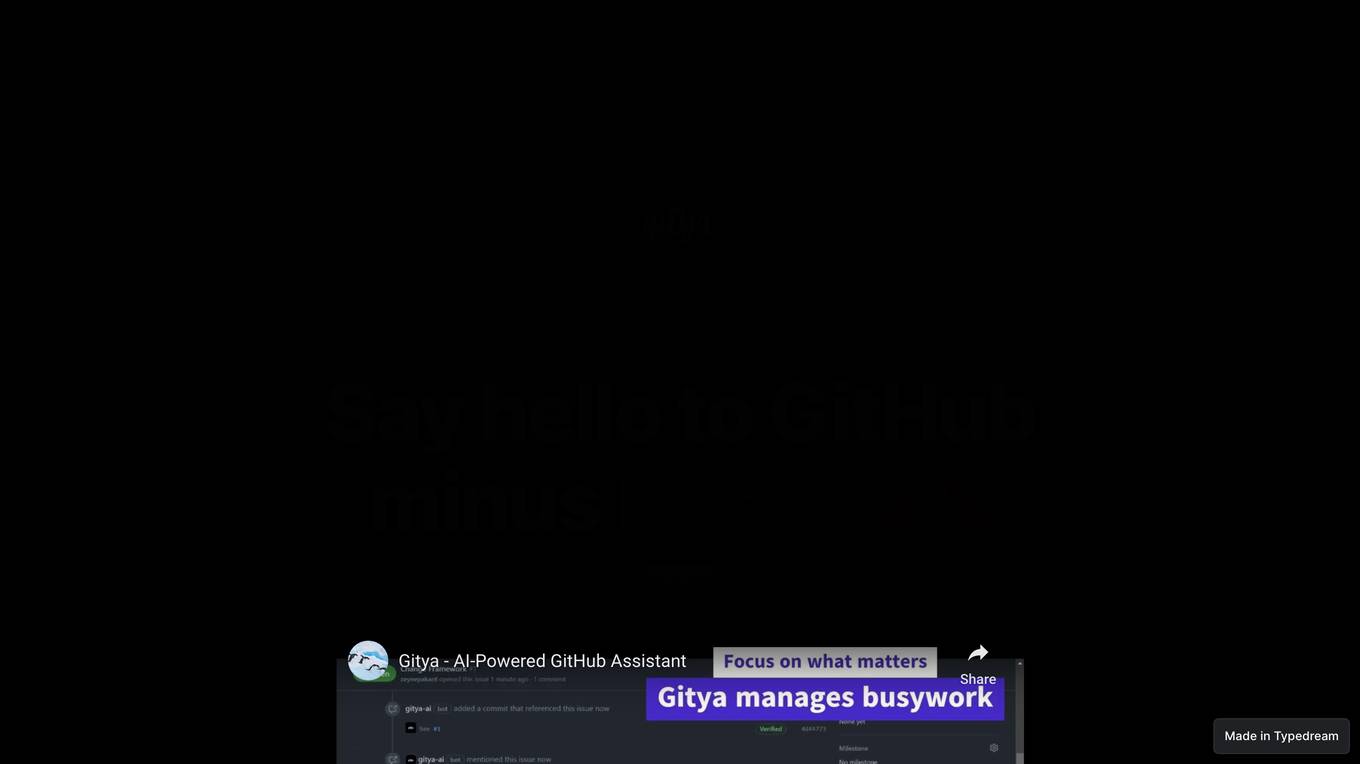
Gitya
Gitya is an AI-powered GitHub assistant designed to streamline your GitHub workflow by automating minor tasks and enhancing productivity. With features like GitHub App integration, AI-enhanced automation, PR management, and ticket automation, Gitya aims to help users spend less time on busywork and more time on high-impact engineering tasks. Users have praised Gitya for its ability to reduce time spent on bug fixes and PR management, ultimately leading to increased project efficiency and success.
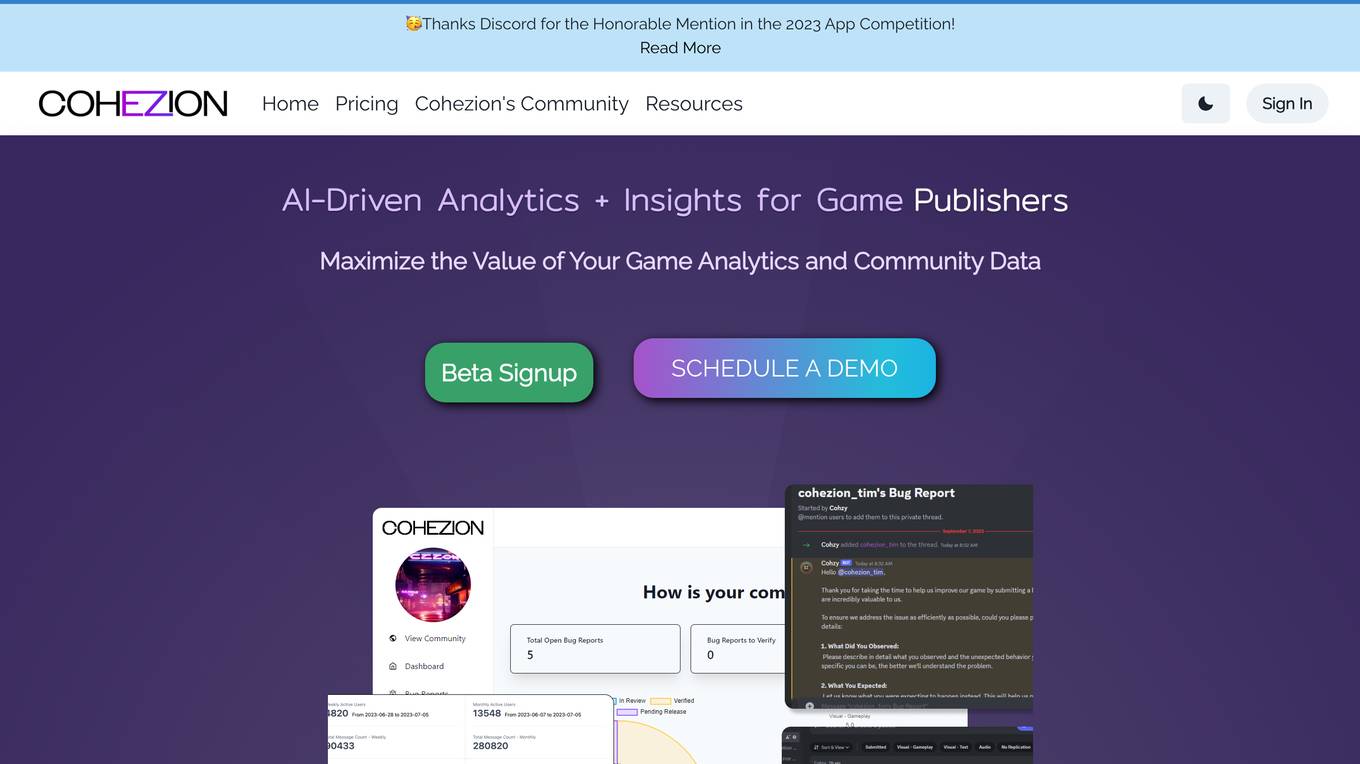
COHEZION
COHEZION is a Community Data Platform designed for gaming communities to increase player LTV and engagement through data-driven decisions. It offers AI-guided bug reporting and feedback workflows, as well as direct project management integration. By leveraging AI technology, COHEZION helps product and operations teams save time and make informed decisions based on insights extracted from bug reports, feedback, and community-generated content.
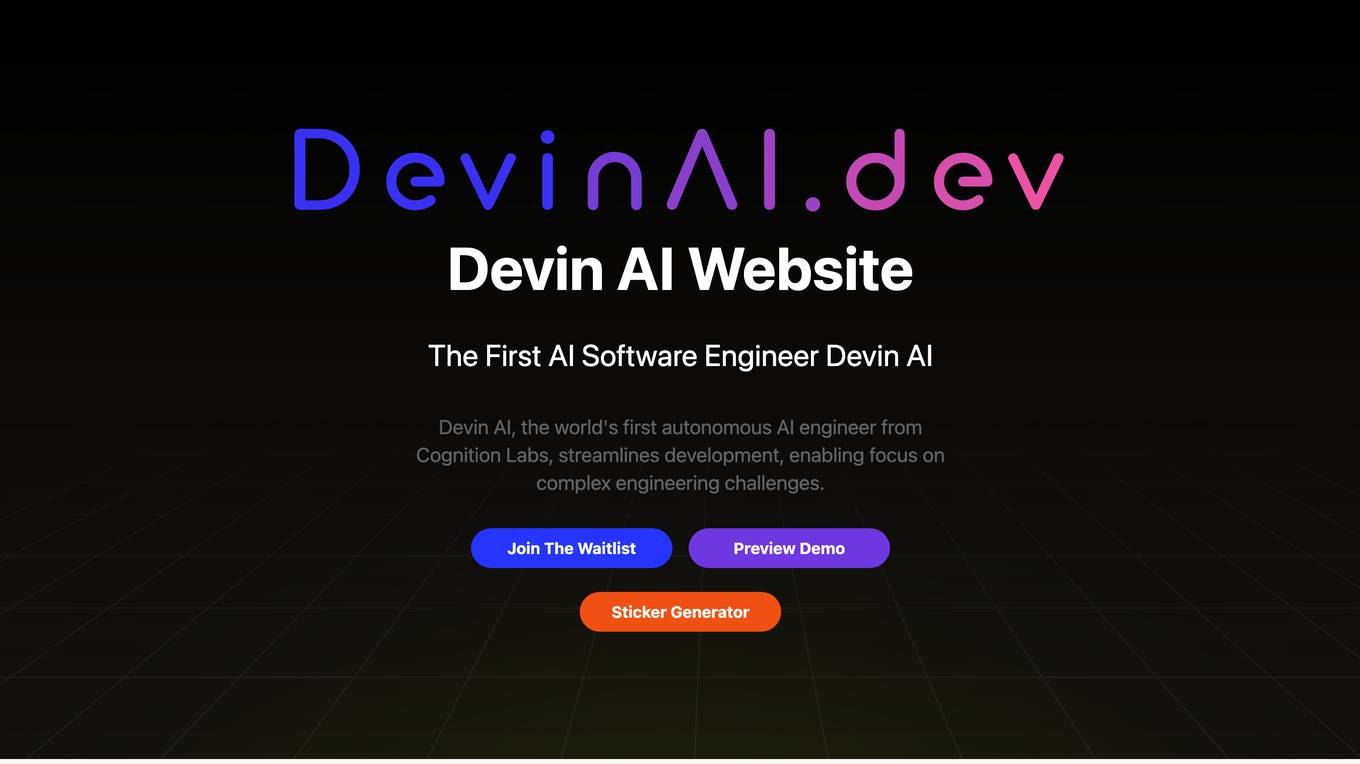
Devin AI
Devin AI, developed by Cognition Labs, is the world's first fully autonomous AI software engineer. It streamlines software development by handling complex tasks, allowing engineers to focus on more challenging aspects. Devin AI possesses advanced programming skills, can manage complex tasks, understands and learns contextually, integrates with developer tools, and offers collaborative features. It can build and deploy applications, detect and fix bugs, contribute to open-source projects, train AI models, and handle GitHub repositories. Devin AI has demonstrated strong performance in issue resolution, surpassing previous AI models. It is currently in early access, with plans for future enhancements and integration with various development tools and platforms.

Pyrafect
Pyrafect is an AI tool that combines AI and risk-based analysis to help users identify high-risk issues and streamline bug fixes. By leveraging AI technology, Pyrafect aims to assist users in prioritizing tasks and delivering a stable user experience. The tool offers early access to its features, allowing users to proactively manage risks and focus on what matters most.
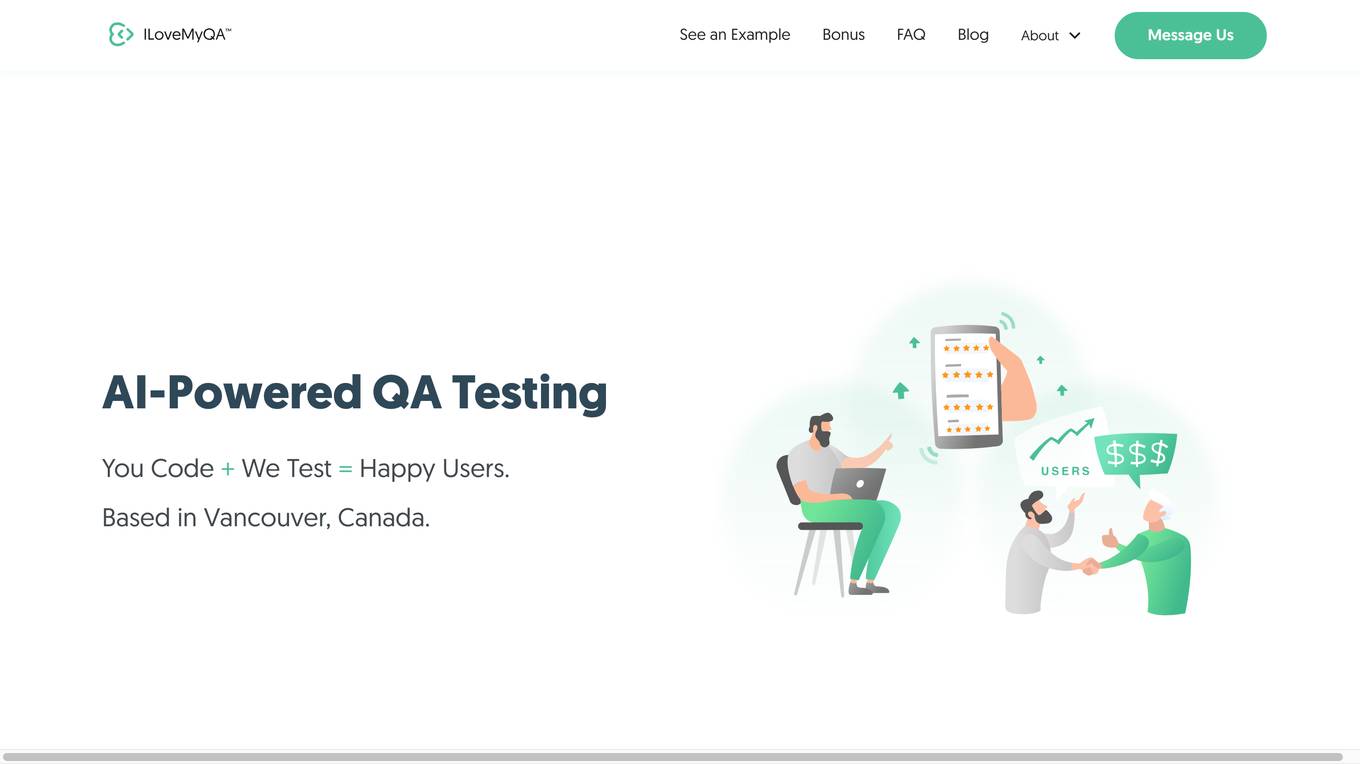
ILoveMyQA
ILoveMyQA is an AI-powered QA testing service that provides comprehensive, well-documented bug reports. The service is affordable, easy to get started with, and requires no time-zapping chats. ILoveMyQA's team of Rockstar QAs is dedicated to helping businesses find and fix bugs before their customers do, so they can enjoy the results and benefits of having a QA team without the cost, management, and headaches.

Checksum.ai
Checksum.ai is an AI-powered end-to-end test automation tool that generates and maintains tests based on real user behavior. It helps users save time in development, achieve comprehensive test coverage, and ensure bug-free code deployment. The tool is self-maintaining, auto-healing, and integrates with popular platforms like Playwright, Cypress, Github, Gitlab, Jenkins, and CircleCI. Checksum.ai is designed to streamline the testing process, allowing users to focus on shipping high-quality products with confidence.
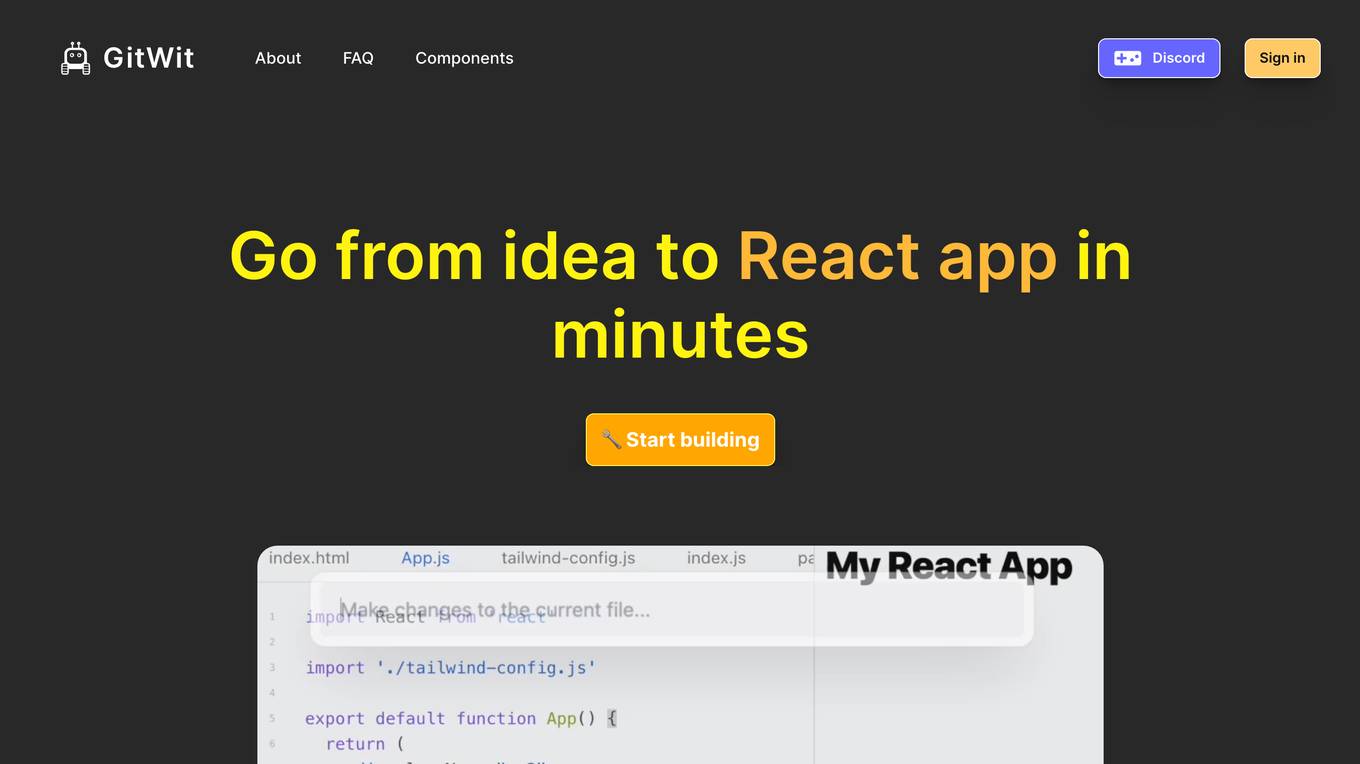
GitWit
GitWit is an online tool that helps you build web apps quickly and easily, even if you don't have any coding experience. With GitWit, you can create a React app in minutes, and you can use AI to augment your own coding skills. GitWit supports React, Tailwind, and NodeJS, and it has generated over 1000 projects to date. GitWit can help you build any type of web app, from simple landing pages to complex e-commerce stores.
1 - Open Source Tools
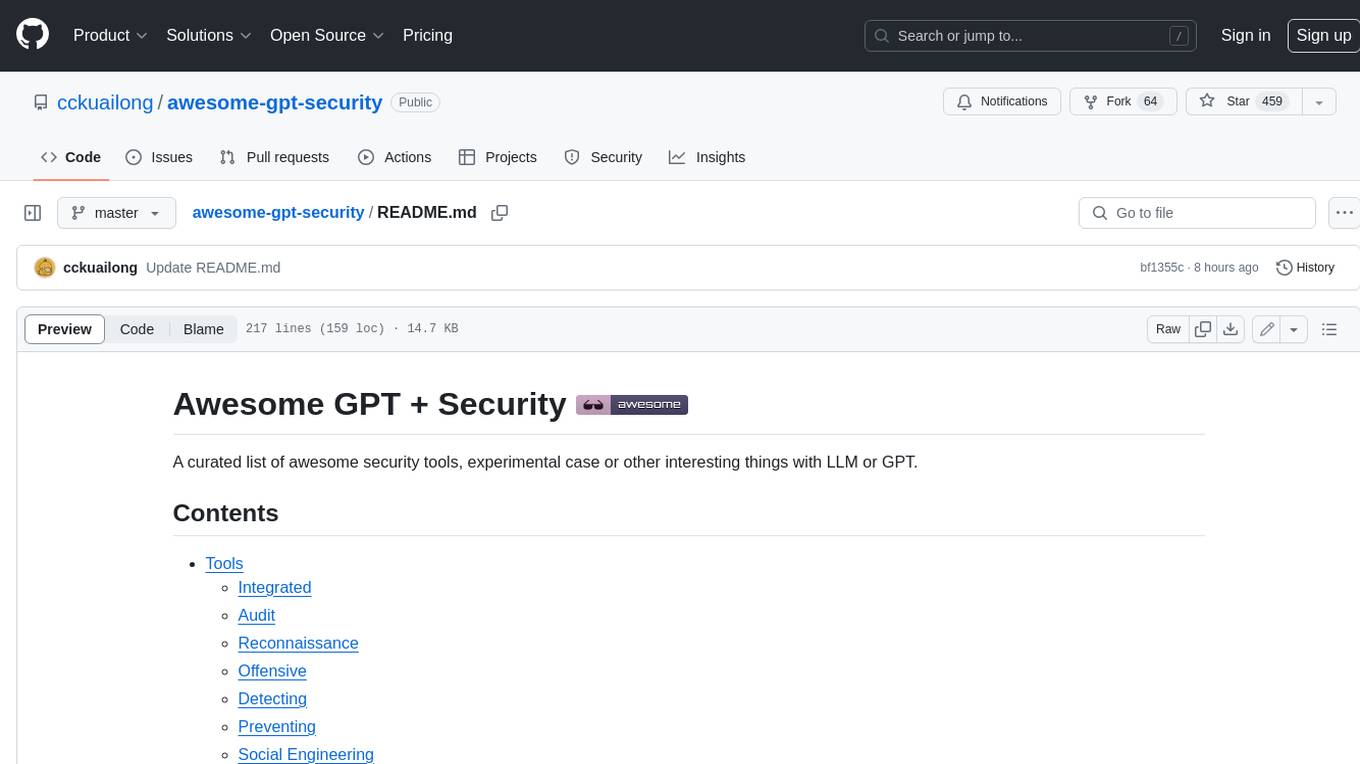
awesome-gpt-security
Awesome GPT + Security is a curated list of awesome security tools, experimental case or other interesting things with LLM or GPT. It includes tools for integrated security, auditing, reconnaissance, offensive security, detecting security issues, preventing security breaches, social engineering, reverse engineering, investigating security incidents, fixing security vulnerabilities, assessing security posture, and more. The list also includes experimental cases, academic research, blogs, and fun projects related to GPT security. Additionally, it provides resources on GPT security standards, bypassing security policies, bug bounty programs, cracking GPT APIs, and plugin security.
14 - OpenAI Gpts
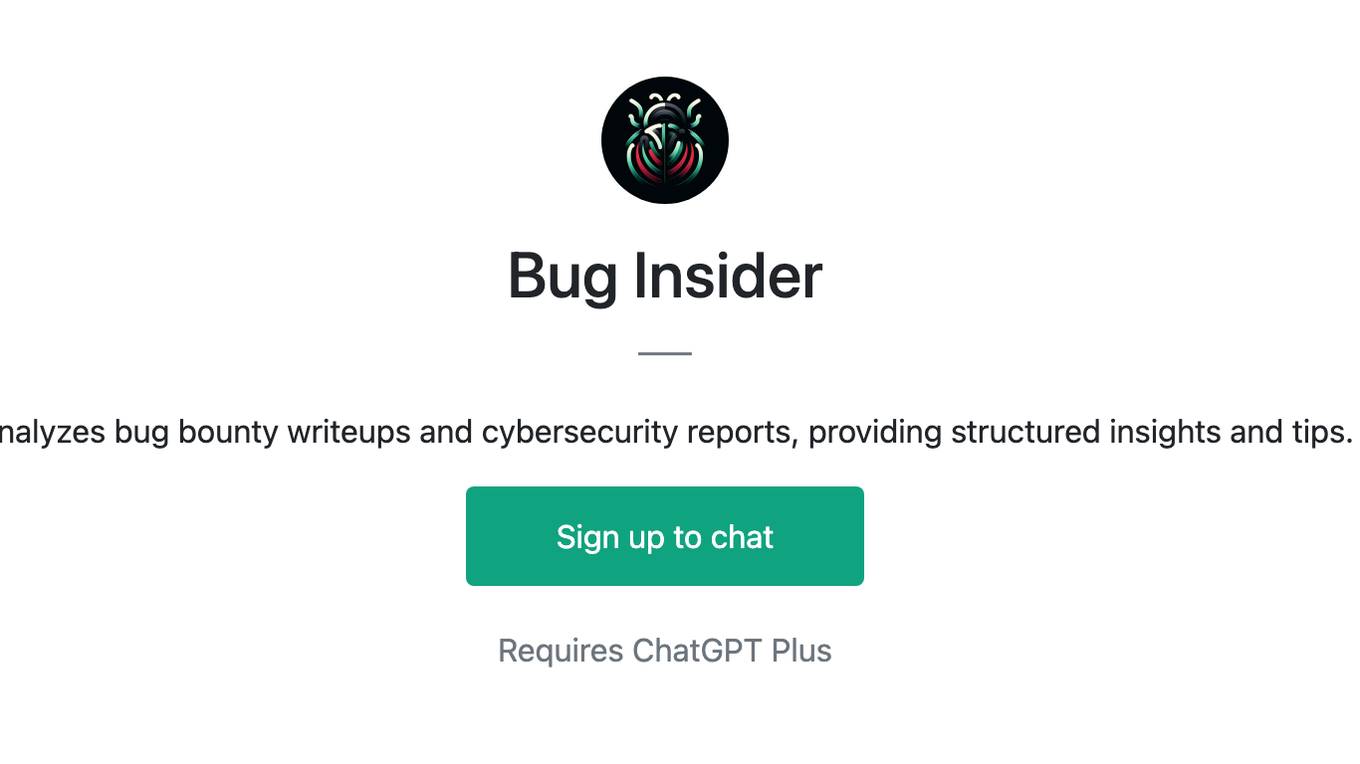
Bug Insider
Analyzes bug bounty writeups and cybersecurity reports, providing structured insights and tips.

Solidity Contract Auditor
Auditor for Solidity contracts, focusing on security, bug-finding and gas efficiency.

Istio Advisor Plus
Rich in Istio knowledge, with a focus on configurations, troubleshooting, and bug reporting.
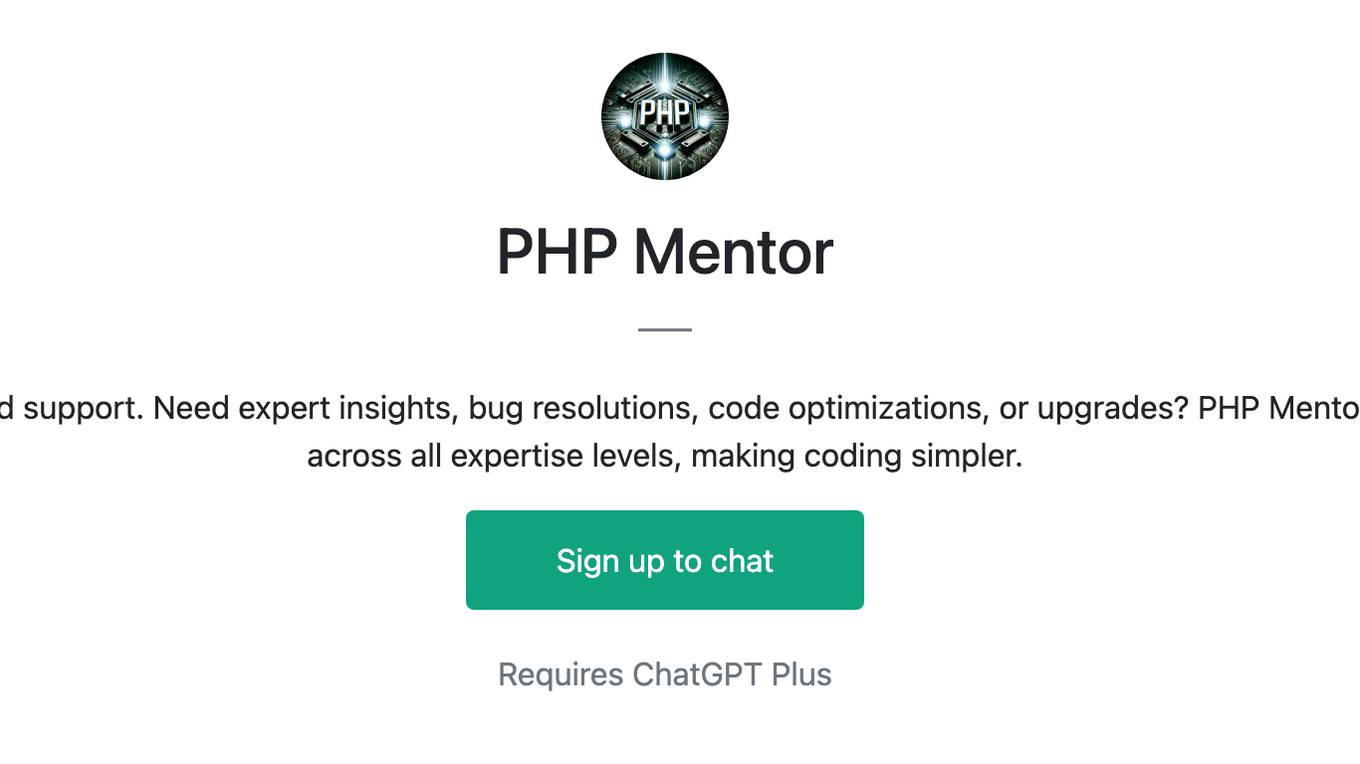
PHP Mentor
Elevate your PHP programming with AI-guided support. Need expert insights, bug resolutions, code optimizations, or upgrades? PHP Mentor delivers custom assistance for developers across all expertise levels, making coding simpler.
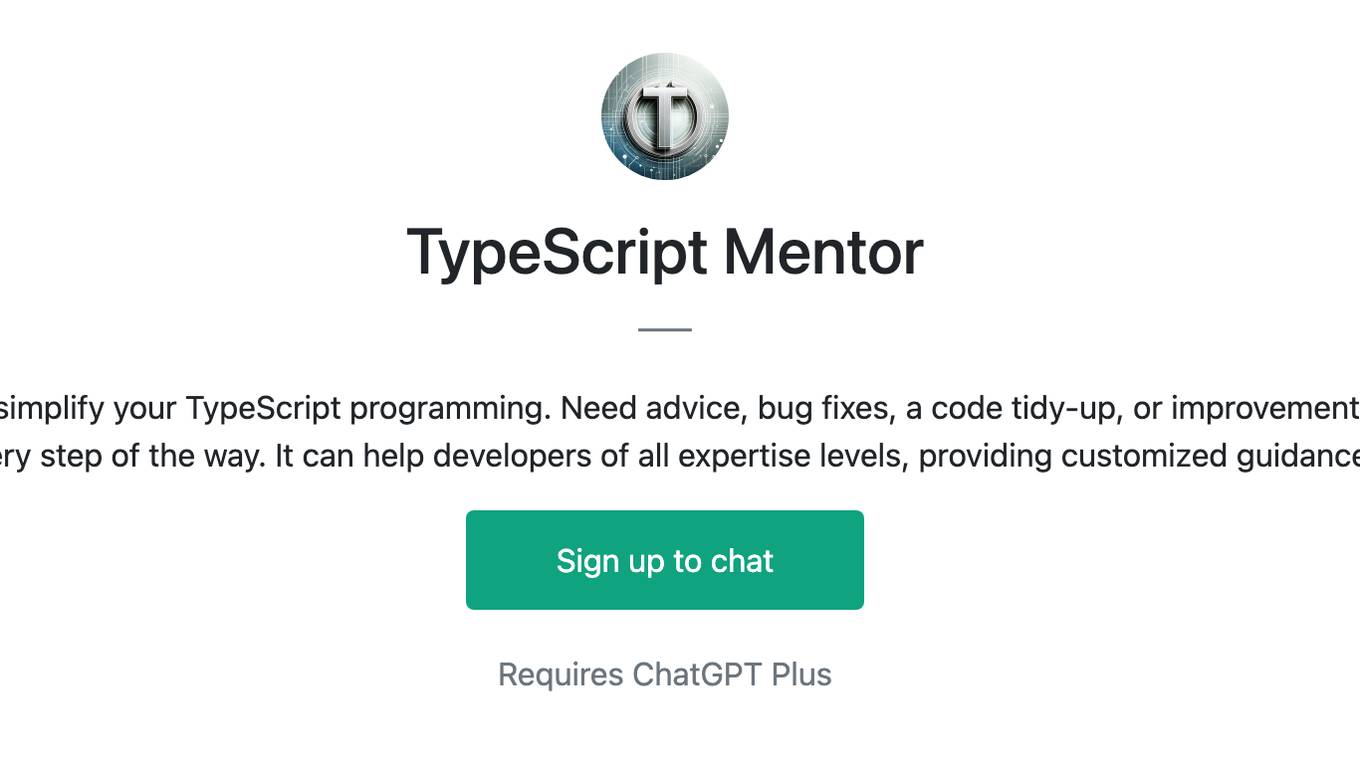
TypeScript Mentor
Your personal AI coding helper, designed to simplify your TypeScript programming. Need advice, bug fixes, a code tidy-up, or improvements? TypeScript Mentor is there to assist you every step of the way. It can help developers of all expertise levels, providing customized guidance.
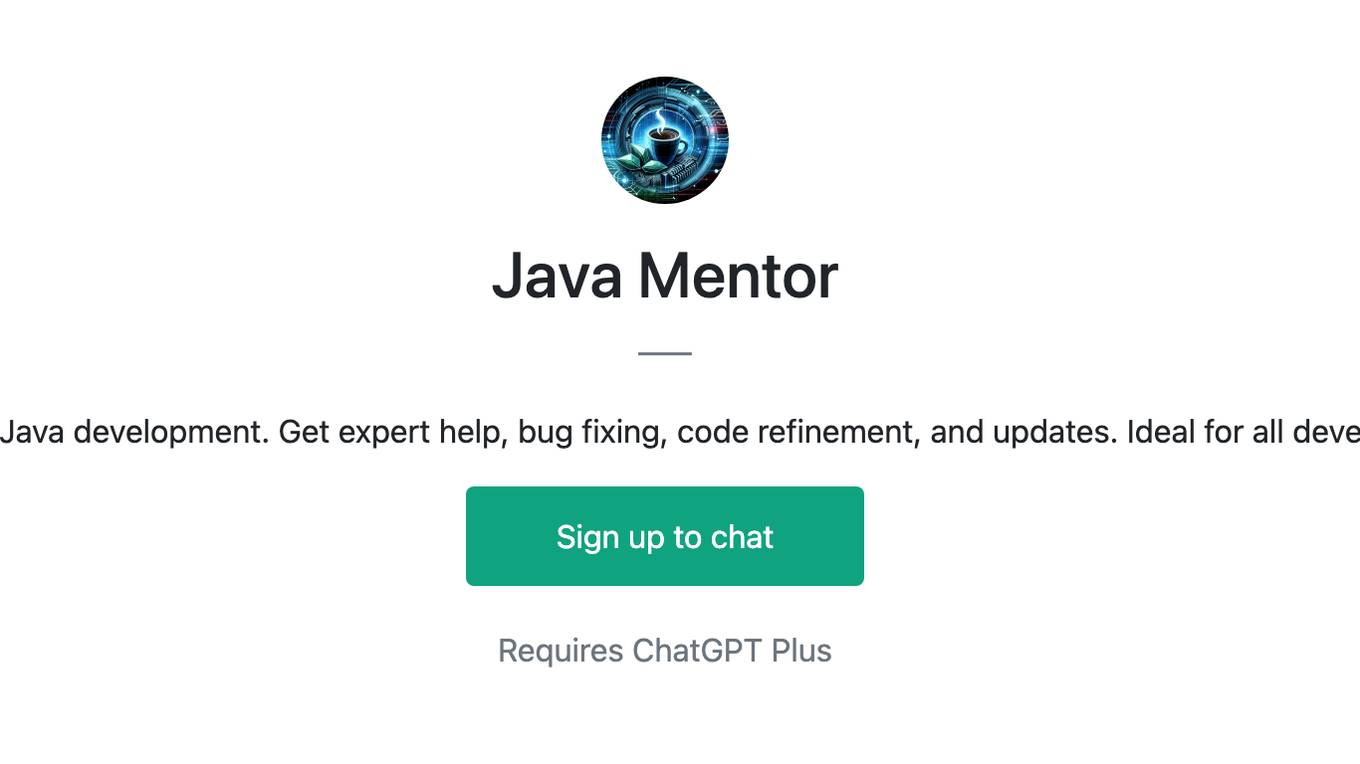
Java Mentor
Java Mentor: AI-driven assistance for Java development. Get expert help, bug fixing, code refinement, and updates. Ideal for all developer levels, making coding simpler.
